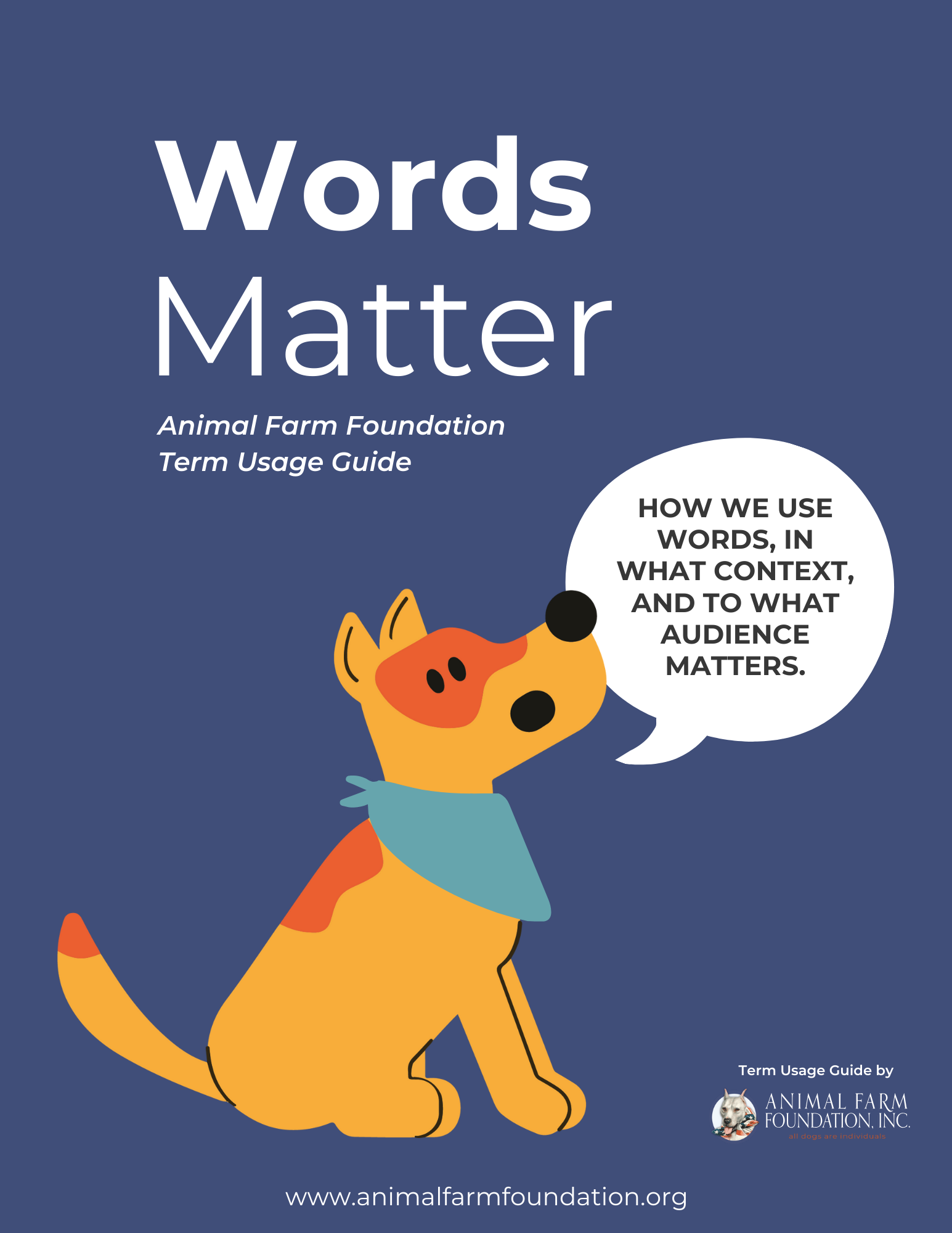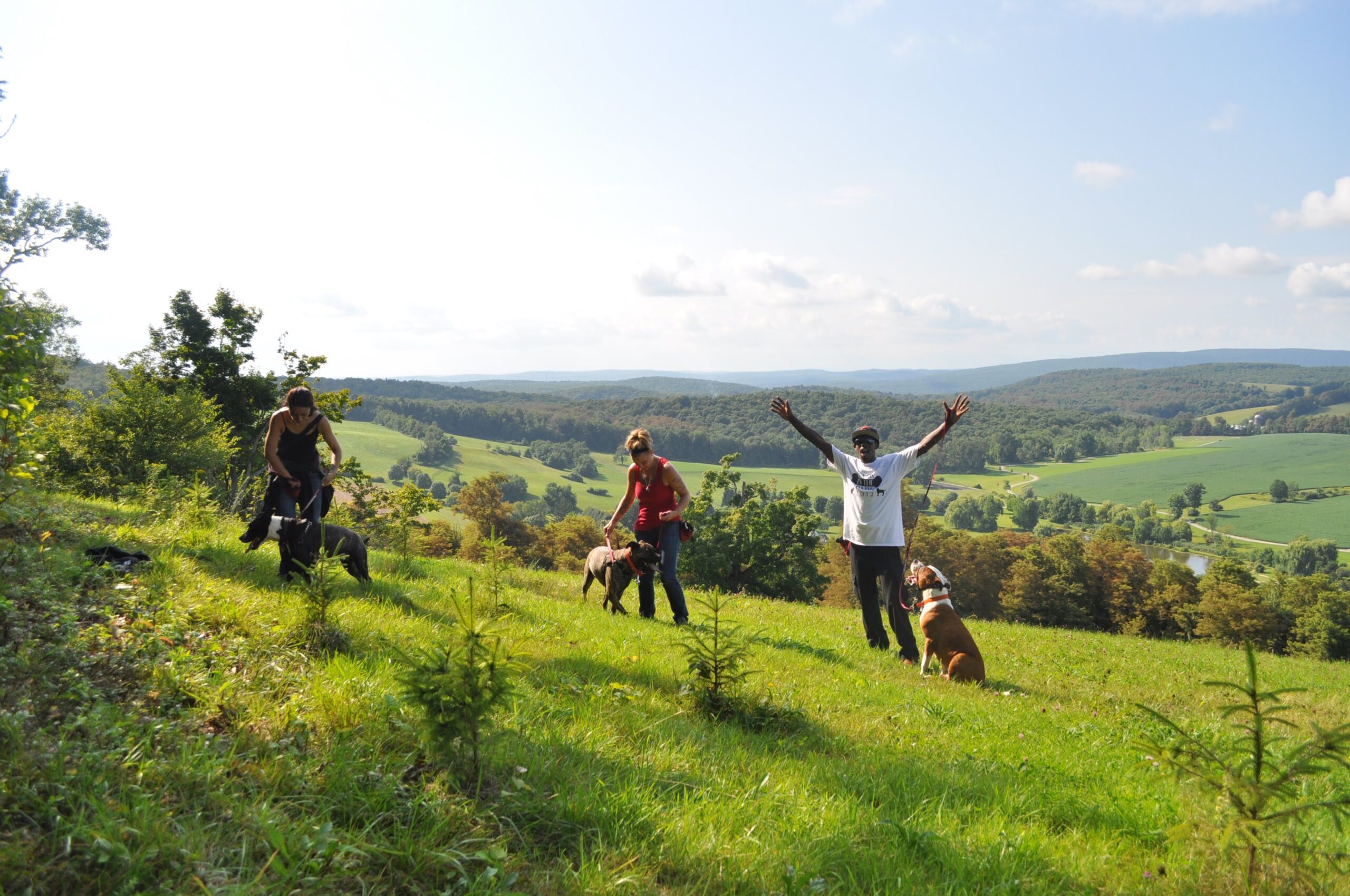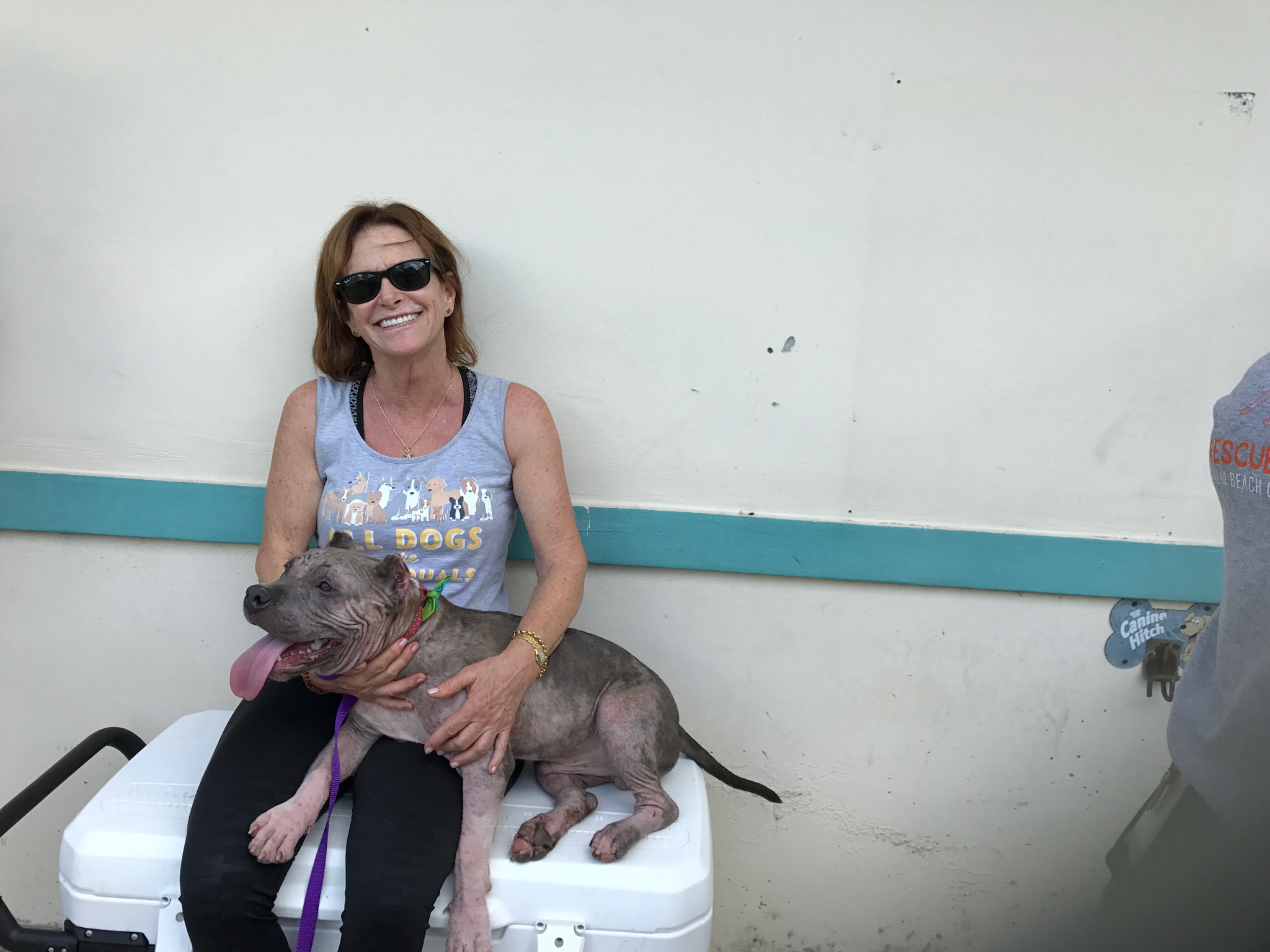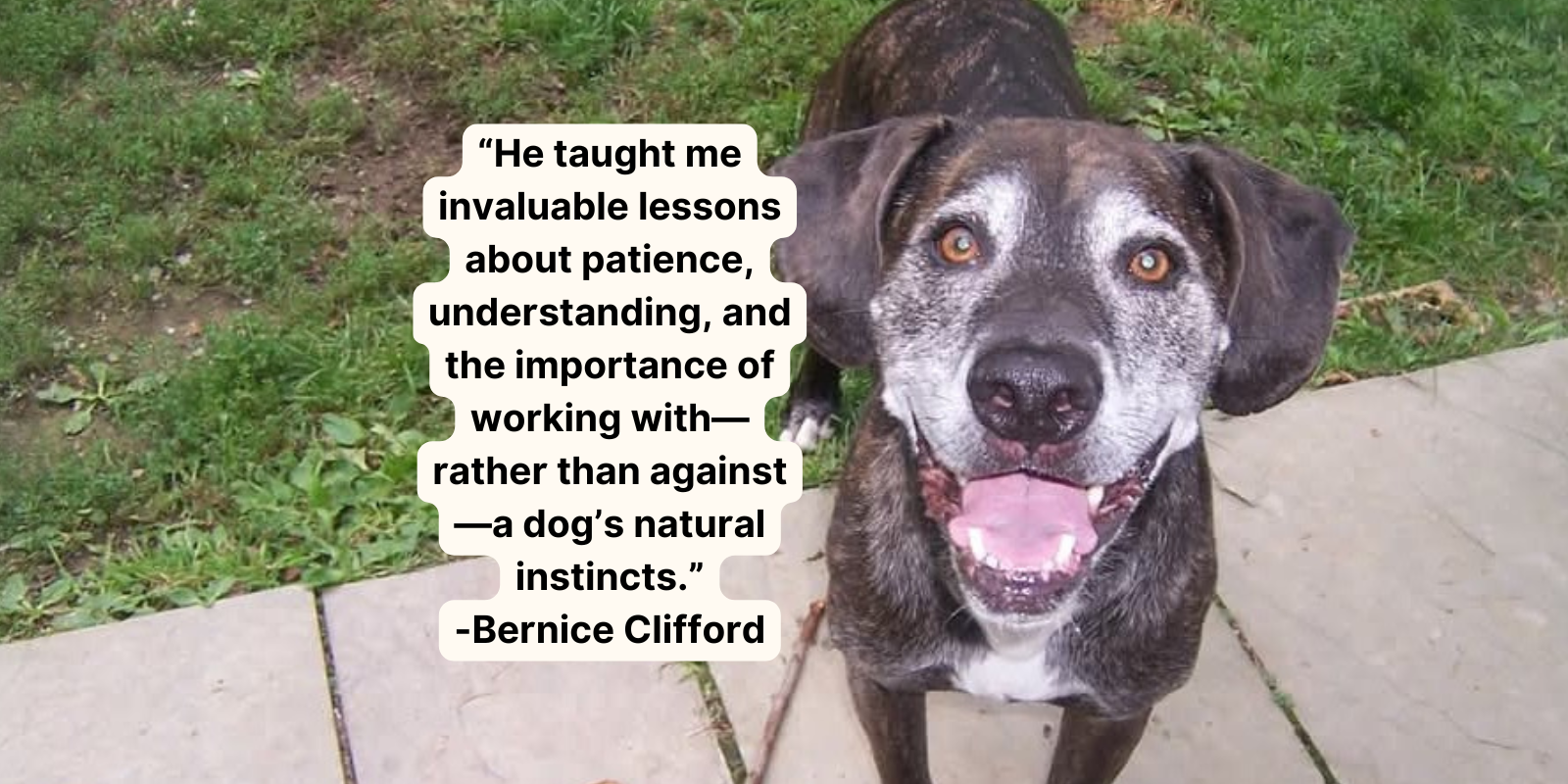Every October, groups around the country host a variety of “Pit Bull Awareness” events. These are positive, educational events. However, we know that language shapes how we perceive the world and, as animal welfare evolves, it’s important that we occasionally stop and take a critical look at how we frame “pit bull” dogs with our words.
So now seems like the right time to ask: How do we influence public perceptions of “pit bull” dogs when we ask people to be “aware” of them? Does this inspire them to adopt or think differently or does it continue to frame “pit bull” dogs as different than other dogs or a problem (“we have too many of them!”) that needs to be fixed?
Since Pit Bull Awareness Day began nearly a decade ago, there has been tremendous progress for “pit bull” dogs and the issues that affect their families. The simple truth is that, thanks to the tireless work of advocates over the past couple of decades, today things are truly better for the dogs labeled “pit bulls.”
For example, a decade ago, many animal shelters maintained discriminatory policies which banned any dog labeled “pit bull” from their adoption floors. Or, the dogs labeled “pit bull” were allowed on the adoption floor (sometimes a special locked section!), but only available to adopt under heavy blanket restrictions.
Today, as we travel around the country working with animal welfare organizations, we want you to know that these kinds of shelter breed bans and blanket policies are now the exception to the rule.
Do some shelters still implement policy based on breed labels? You bet. But the numbers are fading fast. Things are getting better every day for “pit bull” dogs at shelters.
A decade ago, “pit bull” dogs rescued from dog fighting operations were routinely held as evidence then euthanized, without evaluation.
Today, these victims of cruelty are recognized as individuals. Around the country, law enforcement and humane agencies are working together to serve the victims of these crimes. Increasingly, the dogs are receiving fair evaluations and the opportunity for adoption.
Furthermore, we now recognize that the overwhelming majority of “pit bull” dogs in our shelter system and communities have never been exposed to dog fighting.
A decade ago Breed Specific Legislation was on the rise and many communities were implementing poorly researched, ineffective, and discriminatory laws that banned any dog that was identified as a “pit bull”, regardless of the arbitrary label.
Today, BSL is on the decline with communities rejecting and repealing BSL at a higher rate than they’re passing it. Nearly 20 states have passed BSL pre-emptions at the state level.
Are there still communities that ban “pit bull” dogs? You bet. We still have work to do to ensure that every town, in every state, passes fair, effective laws that focus on responsible ownership, not breed or physical appearance. But have no doubt about it, we’re winning this battle.
In short, major changes have happened since Pit Bull Awareness Day began and the changes are for the better!
Today, we know that “pit bull” dogs are one of the most popular dogs in the country, living with everyday families who love and care for them responsibly.
Today we know that the public is open to adopting “pit bull” dogs and, in many shelters, there is no delay in sending “pit bull” dogs home. The public wants to adopt them. The “only 1 in 600 pit bulls find a home” myth has been busted.
Today we have the scientific research and studies that document that all dogs, including “pit bull” dogs, are individuals. There is a far greater understanding of the fact that physical appearance and breed labels are not accurate predictors of behavior.
Today, we have statements from The White House to the AVMA to the American Bar Association stating their opposition to BSL.
Today the media is peppered with positive, accurate stories of “pit bull” dogs who contribute to our families and communities and win awards, as well as those who simply share their lives with the families who love them.
Perhaps it’s time, given all the changes in the past few years, to refresh how we talk about “pit bull” dogs every October so that it reflects how far we’ve come and invites the public to get in on the fun!
“Pit bull” dog advocates have done an amazing job of raising awareness about the unfair treatment and misinformation surrounding these dogs. And there is much work to be done in the years to come. But the successes are just too great to ignore.
We need to allow the wonderful progress that’s been made to influence our approach to how we talk about the dogs and the way we engage in public education.
So, as we continue to educate and work for fair shelter polices, non-discriminatory laws, housing, and insurance for “pit bull” dogs and their families, let’s invite the public to join us in the positive direction we’re already moving in.
2014 is a good time to reframe the way we call the public’s attention to “pit bull” dogs and their families every October. Rather than using this time to lament struggles, ring alarms, or ask for sympathy, we can shift the focus to how wonderful life is when we share it with our pets, including “pit bull” dogs. Let’s ask the public to join us in Pit Bull Celebration Days!








